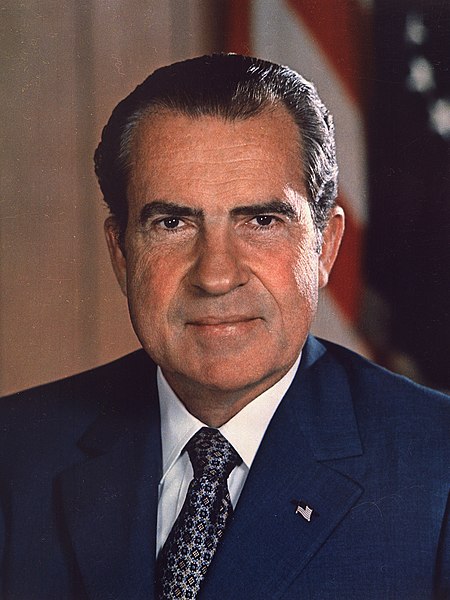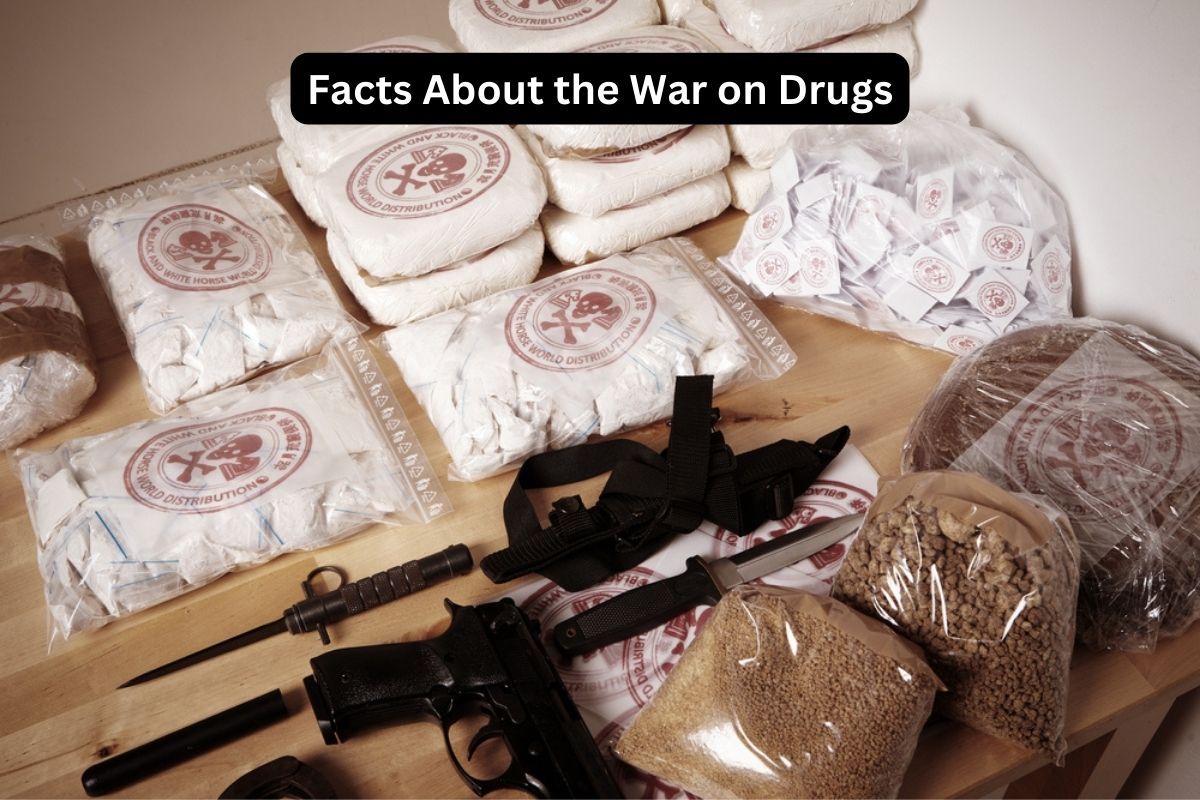The “War on Drugs” has been a central policy framework in addressing drug-related issues for decades, shaping legislation, law enforcement strategies, and societal perceptions worldwide.
However, its multifaceted impact and contested efficacy have sparked ongoing debates regarding its effectiveness, unintended consequences, and ethical implications.
In this article, we delve into the complexities of the War on Drugs, exploring its origins, economic and social costs, racial disparities, and global repercussions.
Furthermore, we examine shifting attitudes towards alternative approaches and the urgent need to address pressing challenges such as the opioid epidemic.
By critically examining the intricacies of drug policy, we aim to foster a deeper understanding of this complex issue and explore pathways towards more effective, equitable, and humane approaches to drug control.
War on Drugs Facts
1. Originated in the early 1970s under Nixon administration
Originated in the early 1970s under the Nixon administration: The term “War on Drugs” was coined by President Richard Nixon in 1971 to describe the comprehensive effort to combat drug abuse and the illegal drug trade in the United States.
Also Read: Timeline of the War on Drugs
Nixon declared drug abuse as “public enemy number one” and initiated a series of policies aimed at reducing drug use, including increased law enforcement efforts, stricter penalties for drug offenses, and expanded funding for drug prevention and treatment programs.

2. Increased incarceration rates, particularly among minorities
Increased incarceration rates, particularly among minorities: One of the most significant outcomes of the War on Drugs has been a dramatic rise in incarceration rates, fueled largely by harsh penalties for drug-related offenses.
Also Read: Pablo Escobar Timeline
Mandatory minimum sentencing laws and aggressive policing strategies have disproportionately targeted minority communities, leading to a staggering increase in the number of individuals, especially African Americans and Hispanics, behind bars for drug offenses.
Critics argue that these policies have perpetuated systemic racism within the criminal justice system and have had devastating social and economic consequences for affected communities.
3. Global impact with enforcement efforts and international cooperation
Global impact with enforcement efforts and international cooperation: While the War on Drugs originated in the United States, its influence and enforcement efforts have extended globally.
Many countries have adopted similar drug control policies, leading to widespread enforcement initiatives, international cooperation agreements, and sometimes even military interventions in drug-producing regions.
Efforts to disrupt drug trafficking networks often involve collaboration between law enforcement agencies from different countries, reflecting the interconnected nature of the global drug trade and the shared challenges faced by nations in combating it.
4. Persistence of drug trafficking organizations despite enforcement
Persistence of drug trafficking organizations despite enforcement: Despite decades of law enforcement efforts and significant resources devoted to combating drug trafficking, drug trafficking organizations (DTOs) have proven remarkably resilient and adaptable.
These organizations operate across borders, utilizing sophisticated networks and strategies to evade detection and law enforcement efforts. They often employ violence, corruption, and intimidation to protect their interests and maintain control over drug production, transportation, and distribution.
Despite seizures and arrests, new organizations emerge to fill any gaps left by dismantled groups, highlighting the persistent and elusive nature of the illicit drug trade.

5. Critics argue it exacerbates public health issues
Critics argue it exacerbates public health issues: While the War on Drugs aimed to reduce drug abuse and its associated harms, critics argue that its emphasis on punitive measures and enforcement has often exacerbated public health issues.
Policies such as strict drug laws, punitive sentencing practices, and limited access to harm reduction services have driven drug use further underground, hindering efforts to address addiction as a public health issue.
Additionally, criminalization can deter individuals from seeking help for substance abuse problems, leading to increased health risks, overdose fatalities, and the spread of infectious diseases such as HIV/AIDS and hepatitis.
6. Racial disparities in arrests, convictions, and sentencing
Racial disparities in arrests, convictions, and sentencing: The enforcement of drug laws has resulted in significant racial disparities in arrests, convictions, and sentencing outcomes.
Studies consistently show that African American and Hispanic individuals are disproportionately targeted and punished for drug offenses compared to their white counterparts, despite similar rates of drug use across racial and ethnic groups.
Factors such as racial profiling, disparate policing practices, and socioeconomic disparities contribute to these disparities, highlighting systemic injustices within the criminal justice system.
Critics argue that these disparities perpetuate cycles of poverty, inequality, and disenfranchisement, exacerbating social tensions and undermining the legitimacy of drug enforcement policies.
7. Imposes significant economic costs on society
Imposes significant economic costs on society: The War on Drugs carries substantial economic burdens for society at large.
Resources allocated to law enforcement efforts, including policing, investigations, and incarceration, represent a significant portion of government budgets.
Moreover, the costs associated with drug-related crime, such as property damage, healthcare expenses, and lost productivity, further strain public finances.
Additionally, the societal costs of incarcerating individuals for drug offenses extend beyond direct expenditures to include the long-term economic impacts on families and communities, such as diminished earning potential, disrupted social networks, and intergenerational poverty cycles.

8. Shifts in public opinion towards alternative approaches
Shifts in public opinion towards alternative approaches: Over time, public opinion regarding drug policy has undergone significant shifts, with increasing support for alternative approaches beyond traditional enforcement-centered strategies.
Growing recognition of the limitations and unintended consequences of the War on Drugs has fueled calls for more pragmatic and evidence-based approaches, including harm reduction, decriminalization, and legalization of certain drugs.
Advocates argue that these alternative approaches prioritize public health, human rights, and social justice while reducing the harms associated with punitive drug policies, such as mass incarceration and stigma.
9. Focus has shifted to addressing the opioid epidemic
Focus has shifted to addressing the opioid epidemic: In recent years, the focus of drug policy discussions in many countries, including the United States, has shifted towards addressing the opioid epidemic.
The widespread misuse of prescription opioids, heroin, and synthetic opioids like fentanyl has led to a public health crisis characterized by escalating rates of overdose fatalities, substance use disorders, and related health complications.
Efforts to combat the opioid epidemic encompass a range of strategies, including expanding access to addiction treatment and recovery services, promoting responsible opioid prescribing practices, increasing availability of overdose reversal medications, and targeting illicit opioid trafficking networks.
10. Faces international criticism for human rights implications
Faces international criticism for human rights implications: The War on Drugs has faced international criticism for its human rights implications, particularly in countries where aggressive drug control policies have led to widespread human rights abuses.
Allegations of extrajudicial killings, forced disappearances, torture, and arbitrary detention have been leveled against some governments engaged in draconian anti-drug campaigns.
Additionally, punitive drug policies often exacerbate social inequalities, marginalize vulnerable populations, and undermine fundamental rights, including the right to health, privacy, and due process.
International human rights organizations and advocacy groups continue to raise concerns about the human rights impacts of the War on Drugs, calling for policy reforms grounded in respect for human dignity, justice, and evidence-based approaches to drug control.
